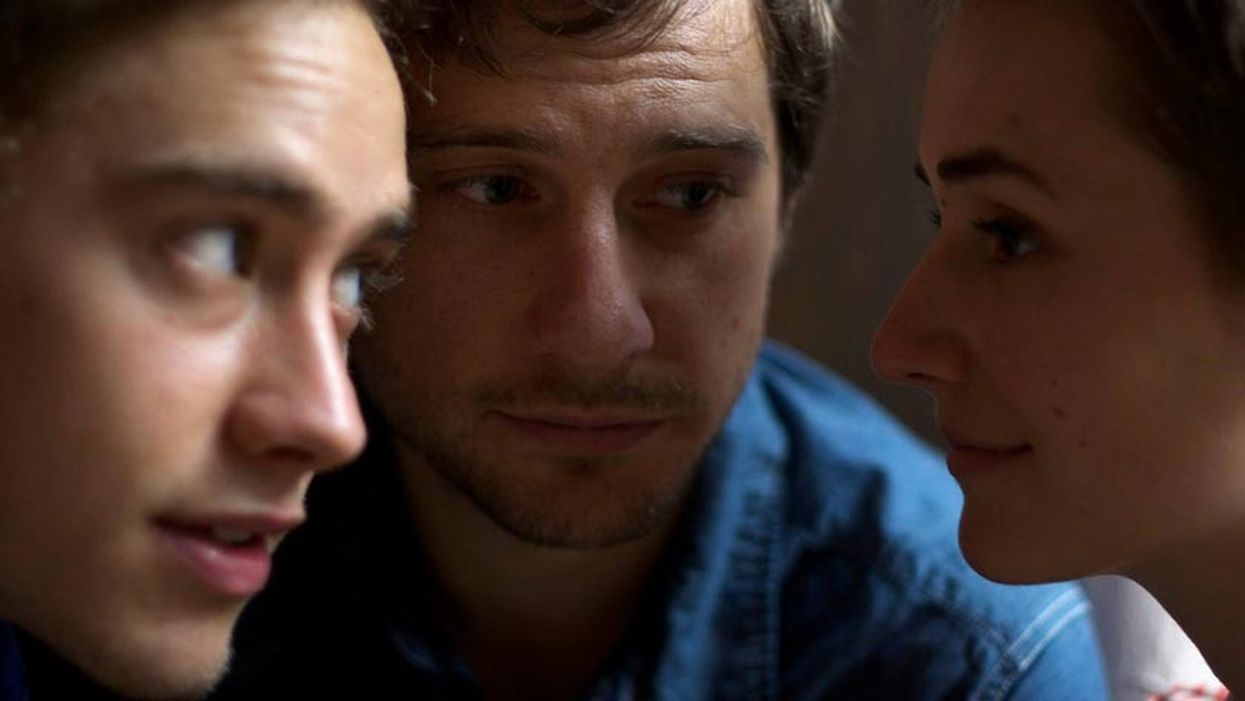'I've Become Allergic to Artifice.' Alison Bagnall on Her Festival Darling 'Funny Bunny'
No huge movie stars and no technocranes, but an oddly warm and effervescent voice permeates Funny Bunny. Premiering at SXSW and taking Best Narrative Feature at Indie Memphis, Kentucker Audley and Olly Alexander play unlikely friends on a mission. We caught up with director Alison Bagnall at AFI 2015.

Fully scripted and co-written by her actors, Alison Bagnall's third feature might sound like a lot like other films you've seen — but what makes Funny Bunny tick with a tangible outsider energy? For director Alison Bagnall (The Dish and the Spoon), creating an atmosphere comes down to her belief in protecting actors and the importance of having a good time on set.
I think people need to have fun doing it.
NFS: How did you land on the cast for this film?
Alison: I saw Kentucker in Bad Fever at SXSW and just thought, “That’s the guy.” It was a character that was hard to believe, it needed just the right actor. I believe in the whole Polanski thing, to find an actor who’s within an inch -- a millimeter -- of the character already, so you just put them in a situation and watch them behave. If [two characters] are meant to be getting to know each other during the course of the movie, it’s good when actors can be actually getting to know each other. I’ve become allergic to artifice. Some movies I can feel the makeup artist on the sidelines just waiting to fly in and fix someone’s hair.
I only went to film school to learn to work with actors.
NFS: How do you define a good performance?
Alison: I want a performance to feel completely authentic. For me, the epitome of a great performance is Marlon Brando in Last Tango in Paris. Bertolucci basically robbed his soul, which Brando was upset about because he felt so naked. Bertolucci would meet him in the evenings and have a therapy session. I just try to find actors who are natural and authentic. Kentucker is just so funny and odd in his use of language and what he does with his face. The average filmgoer is so used to this codified style of acting — great, there's that word again — and if they aren’t doing that people say that’s not acting.
You’re creating an artificial world and you’ve gotta make people believe it and feel like you can live in it for an hour and a half.

NFS: Was this film in any way a rejection of what you learned at film school?
Alison: I didn’t used to believe in film school, but I do now a little more as long as it’s not too expensive. I only went to film school to learn to work with actors. Because there’s a real director’s toolkit that you need. I didn’t learn in film school where to put the camera, I figured it out on my own. But I used every bit of what my directing teacher told us, which is basically that you’re to put a protective bubble around your actor, that they have the hardest job on the whole set, they are carrying the reality of your world. Because every movie that you write, you’re creating an artificial world and you’ve gotta make people believe it and feel like you can live in it for an hour and a half. The actors are having to carry that world. Their body becomes the vessel of that world and the story. So I learned to protect actors and support them utterly. I used to think actors were such prima donnas -- why do they get a trailer and a special trailer? But no, they need that place to just go away so they can perpetually inhabit that world. And it’s a really tough job.
NFS: Was it difficult to find financing for this kind of story?
Alison: It took place over years, and at one point it was going to be a much bigger movie with Greta Gerwig and John C. Riley and it was up to over a half a million dollars. And at that point I started to lose creative control, and it was like, “Oh, can you take out the child obesity thing, a lot of our audience is overweight.” And I was like, “Uh, not really.” There was nothing left. So that collapsed, and I realized that I couldn’t make this story with a bigger budget. So, I did the Dish and the Spoon, and when I did this we did a Kickstarter for $50,000 and got an additional $10,000 and shot it for $60,000.
Find a way to make the movie as inexpensively as possible. It’s all about the ideas.
NFS: Earlier you mentioned something about the kind of ego it takes to exist in this [Hollywood] environment.
Alison: I don’t have much of an ego anymore; it’s probably an age thing. I don’t care if I make another movie again — just do the things that make one happy. Everyone has to make the art that they need to be making or know how to make. You just have to do the stuff you like and not worry about the commerce of it. Find a way to make the movie as inexpensively as possible. It’s all about the ideas. And not stress out the people who are working with you — feed people well. The process of making a film and it being a good fun experience is as important to me as the final product. I think people need to have fun doing it.















